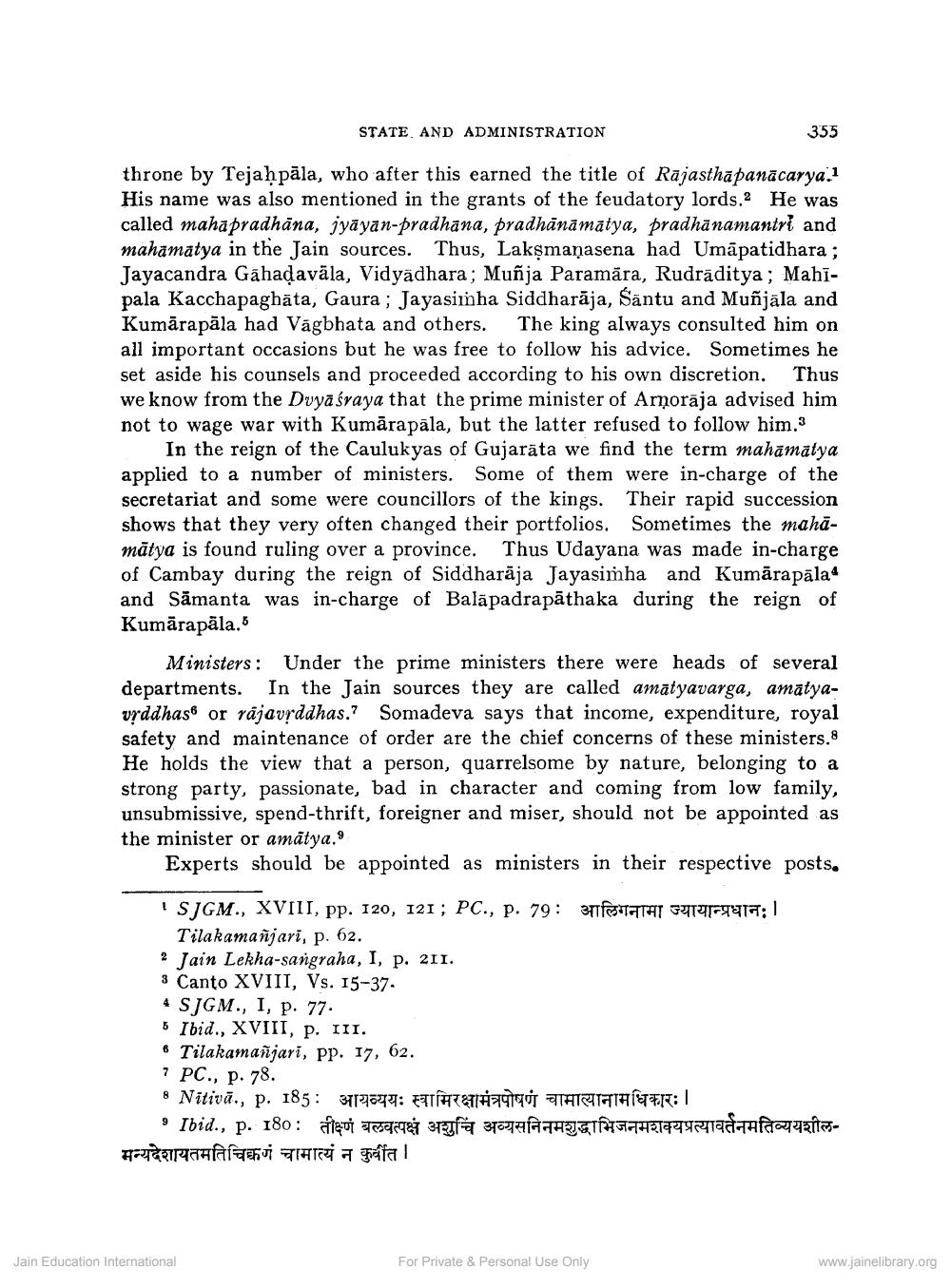________________
STATE AND ADMINISTRATION
335
throne by Tejahpāla, who after this earned the title of Rajasthāpanācarya 1 His name was also mentioned in the grants of the feudatory lords. He was called mahapradhāna, jyāyan-pradhana, pradhānāmātya, pradhānamantri and mahamatya in the Jain sources. Thus, Lakşmaņasena had Umāpatidhara; Jayacandra Gahadavāla, Vidyadhara; Muñja Paramāra, Rudrāditya ; Mahipala Kacchapaghāta, Gaura; Jayasimha Siddharāja, Santu and Muñjāla and Kumārapāla had Vágbhata and others. The king always consulted him on all important occasions but he was free to follow his advice. Sometimes he set aside his counsels and proceeded according to his own discretion. Thus we know from the Duyaśraya that the prime minister of Armorāja advised him not to wage war with Kumāra pāla, but the latter refused to follow him.
In the reign of the Caulukyas of Gujarāta we find the term mahāmatya applied to a number of ministers. Some of them were in-charge of the secretariat and some were councillors of the kings. Their rapid succession shows that they very often changed their portfolios. Sometimes the mahāmātya is found ruling over a province. Thus Udayana was made in-charge of Cambay during the reign of Siddharāja Jayasimha and Kumārapāla and Samanta was in-charge of Balapadrapāthaka during the reign of Kumārapāla.5
Ministers: Under the prime ministers there were heads of several departments. In the Jain sources they are called amatyavarga, amatyavrddhas or rájavrddhas.? Somadeva says that income, expenditure, royal safety and maintenance of order are the chief concerns of these ministers.8 He holds the view that a person, quarrelsome by nature, belonging to a strong party, passionate, bad in character and coming from low family, unsubmissive, spend-thrift, foreigner and miser, should not be appointed as the minister or amātya.'
Experts should be appointed as ministers in their respective posts,
I SJGM., XVIII, pp. 120, 121; PC., p. 79: 311FSITETTAT FOTOT TYTT: 1
Tilakamañjari, p. 62. 2 Jain Lekha-sangraha, I, p. 211. 3 Canto XVIII, Vs. 15-37. 4 SJGM., I, p. 77. 5 Ibid., XVIII, P. III. & Tilakamañjari, PP. 17, 62. 7 PC., p. 78. 8 Nitivā., p. 185: 3717827: FTTHETH79190 THTITTAIETER: |
' Ibid., p. 180: Tipui ca 3777 THUGTAFITHR1224adafaisमन्यदेशायतमतिचिकगं चामात्यं न कुर्वीत |
Jain Education International
For Private & Personal Use Only
www.jainelibrary.org




